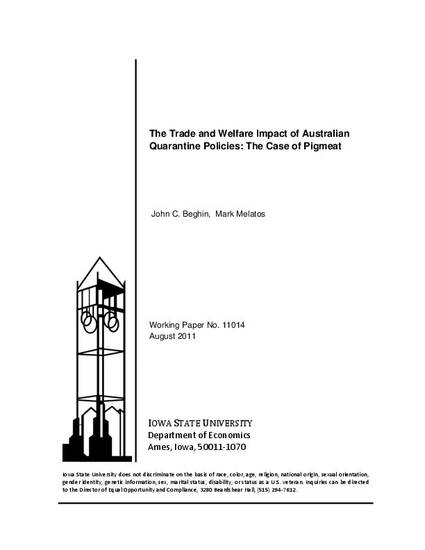
We analyse the trade and welfare impact of quarantine measures imposed by Australia on imports of pigmeat. In particular, we account for changes to Australia’s pigmeat quarantine policy over time including those changes related to the recent resolution of a WTO dispute between Australia and the European Union. Using a random utility model, and applying it to corner solutions in import decisions, tariff equivalents (by major trading partner) are estimated for the different pigmeat quarantine regimes implemented by Australia during the period 1988–2009. The welfare impact on consumers, producers and foreign exporters is computed using a partial equilibrium model calibrated on the econometric estimates. The quarantine regimes had a strong effect on trade and welfare with a tariff equivalent above 113 per cent of average real-world prices over the period analysed.
Available at: http://works.bepress.com/john-beghin/120/

This is a working paper of an article from The World Economy 35 (2012): 1006, doi:10.1111/j.1467-9701.2012.01459.x